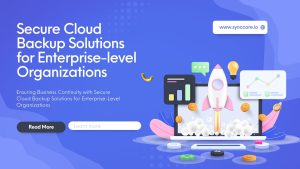The term “cloud services” refers to a broad category that includes the numerous IT resources available via the Internet. The term can also refer to professional services that help with the selection, deployment, and ongoing management of various cloud-based resources.
The first definition of cloud services encompasses a wide range of resources that a service provider delivers to customers via the internet, which has become widely known as the cloud in this context. Self-provisioning and elasticity are two characteristics of cloud services; that is, customers can provision services on-demand and shut them down when they are no longer required.
Furthermore, rather than paying for software licenses and supporting server and network infrastructure upfront, customers typically subscribe to cloud services, for example, through a monthly billing arrangement. This approach makes cloud-based technology an operational expense rather than a capital expense in many transactions. Cloud-based technology, from a management standpoint, allows organizations to access software, storage, compute, and other IT infrastructure elements without the burden of maintaining and upgrading them.
The use of cloud services has become inextricably linked to common cloud offerings such as software as a service (SaaS), platform as a service (PaaS), and infrastructure as a service (IaaS) (IaaS).
Cloud computing is the on-demand, pay-as-you-go distribution of IT services over the Internet. Instead of purchasing, operating, and maintaining physical data centers and servers, you may use a cloud provider like Synccore to get technology services like processing power, storage, and databases on an as-needed basis.
Table of Contents
Public cloud-based services vs. private cloud-based services
Public cloud services are cloud services that a service provider provides to multiple customers over the internet. The providers of SaaS, PaaS, and IaaS mentioned above may all be considered to provide public cloud-based services.
Private cloud services, in contrast, are not made generally available to an individual or corporate users or subscribers. Private cloud-based services use technologies and approaches associated with public clouds, such as virtualization and self-service. But private cloud services run on an organization’s own infrastructure and are dedicated to internal users, rather than multiple, external customers.
Read related: Public Cloud, Private Cloud & Hybrid Cloud: What is the Difference?
Cloud services as professional services
The second meaning of cloud services entails professional services that allow customers to deploy various types of cloud services. Such services may be provided by consulting firms, systems integrators, and other channel partners to assist their clients in adopting cloud-based technology.
Cloud services in this context could include any or all of the following: cloud-readiness assessment, application rationalization, migration, deployment, customization, private and public cloud integration (hybrid clouds), and ongoing management. Cloud service providers have become an appealing acquisition target for large IT services providers such as Accenture, IBM, and Wipro, which are looking for expertise in cloud consulting and deployment.
Cloud services vs. web services

Cloud services are sometimes confused with web services. Although they are related, the two fields are not identical. A web service allows applications or computers to communicate with one another via the World Wide Web. Thus, web services are typically associated with machine-to-machine communications, whereas cloud services are typically associated with scenarios in which individuals or corporate customers consume the service – for example, users accessing office productivity tools via a SaaS-based application.
Some web services, on the other hand, may be inextricably linked with cloud services and their delivery to individuals and organizations. RESTful web services, which are based on representational state transfer (REST) technology, are frequently used in cloud services, for example. REST is thought to provide open, well-defined interfaces for application and infrastructure services.

Who is a cloud computing user?
Data backup, disaster recovery, email, virtual desktops, software development, and testing, big data analytics, and customer-facing web apps are just a few of the use cases that organizations of all types, sizes and industries are embracing the cloud. Healthcare organizations, for example, are utilizing the cloud to produce more individualized treatments for patients. The cloud is being used by financial services businesses to power real-time fraud detection and prevention. The cloud is also being used by video game developers to deliver online games to millions of players all over the world.
How are cloud services delivered?
When deciding how to use cloud services, organizations must also decide which type of environment is best for them: public cloud, private cloud, or a hybrid of the two.
Public cloud services are services that a supplier makes available over the internet to a large number of consumers. All of the aforementioned instances of SaaS, IaaS, and PaaS are public cloud-based services. The capacity to share resources at scale is the most significant advantage of employing public cloud services, allowing firms to provide employees with more capabilities than would otherwise be possible.
Private cloud services are those that a provider does not make publicly available to corporate users or subscribers. Apps and data are made available through the organization’s own internal infrastructure under a private cloud services model. The platform and software are only used by one company and are not made available to other people. Private clouds are frequently used by companies that operate with extremely sensitive data, such as those in the healthcare and finance industries, to use enhanced security mechanisms and extend resources in a virtualized environment as needed.
A private cloud solution is integrated with public cloud services in a hybrid cloud environment. This solution is common when a company has to store sensitive data in the private cloud while also allowing employees to use public cloud apps and resources for day-to-day communication and collaboration. To enable connectivity across cloud services, proprietary software is often utilized, which is managed through a single IT administration console.
Types of cloud computing
Infrastructure as a Service, Platform as a Service, and Software as a Service are the three basic categories of cloud computing. Each type of cloud computing offers varying degrees of control, flexibility, and management, allowing you to choose the best collection of services for your needs.
Platform as a Service (PaaS)
Platform as a service, or PaaS, is a cloud service model that provides a web-based environment for developers to create cloud apps. Organizations can utilize PaaS to develop cloud-based software without needing to manage the underlying parts, such as a database, operating system, and programming language.
Many IaaS providers, including the ones mentioned above, also provide PaaS services.
Infrastructure as a Service (IaaS)
Many cloud service providers need infrastructure to handle SaaS tools but don’t want to maintain it themselves. Infrastructure as a service, or IaaS, provides that infrastructure. It functions as a full data center framework, removing the need for resource-intensive on-site deployments.
Amazon Web Services (AWS), Microsoft Azure, and Google Compute Engine are examples of IaaS. These companies take care of all storage servers and networking infrastructure, as well as providing load balancing, application firewalls, and other services. IaaS systems are used by several well-known SaaS firms.
Software as a Service (SaaS)
Software as a service, or SaaS, is the most commonly recognized sort of cloud service. This broad category includes services like file storage and backup, web-based email, and project management software.
Users can access, share, store, and safeguard information in “the cloud” through each of these applications.
What are the benefits of cloud services?
Key advantages of using cloud services include:
Costs
Many cloud services are available as a monthly or annual subscription, removing the need to purchase on-premises software licenses. This enables businesses to use software, storage, and other services without having to invest in infrastructure or manage maintenance and upgrades.
Flexibility
Companies can use cloud services to acquire services on an as-needed basis. If and when a particular application or platform is no longer required, the company can simply cancel the subscription or shut down the service.
Ability
There is no need for a corporation to invest in its own resources or dedicate additional IT people to run the service because the cloud service provider provides the essential infrastructure and software. As a result, the organization can easily scale the solution as user demands change, whether that means adding more licenses to suit a growing workforce or expanding and improving the apps themselves.
What’s the future of cloud services?
As cloud services become more widely available, so will their applications in the corporate sphere. These services will continue to ease how enterprises offer mission-critical apps and data to the workforce, whether they opt to expand existing on-premises software deployments or move completely to the cloud. Cloud services are revolutionizing how individuals work and how businesses function, from application delivery to desktop virtualization solutions, and all in between.
Top benefits of cloud computing
Synccore Cloud Services
It’s simple to implement cloud services that suit your company’s needs. Synccore makes it simple to use a wide range of cloud service providers, including AWS, Google Cloud, and Microsoft Azure Virtual Desktop, whether you need to keep business-critical software in a private cloud or progressively shift to numerous public cloud services. This versatility enables businesses to scale quickly, allowing them to safely handle hundreds or thousands of users from any device and location.



